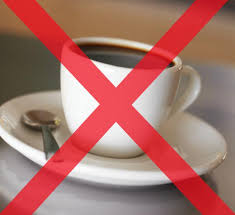Coffee may kill you. Or your dog. Or not.
 Got your attention?
Got your attention?
There’s no shortage of news about health and medicine. Everyday there’s something online or on TV claiming that everyday activities or foods may be life saving or can do irreparable harm. Often the words “a new study has shown…” is featured in the story.
Your first thought is often “Huh?” or something similar.
How to know what to believe? What’s credible? There’s a good bet that a website more known for celebrity gossip may not have peer reviewed medical information.
Health News Review provides info to the general public to critically assess health & science claims. To find out who’s behind this site check the about us link, a good idea for any website you’re not familiar with. Check out the section Tips for Understanding studies.
Clinical researchers need to publish. Press releases are sent out by medical journals and professional organizations hoping the mainstream media will pick up the story. Often video is included with identification info deliberately vague so the local TV new can suggest the white-coated physician is at a hospital “in your area”. Websites have unlimited space to fill & need to drive traffic to their pages likely you’ll find something like this.
The public radio show On the Media recently devoted an entire program to health news and what to be listen for. A check list from Health News Review lists Breaking News Consumer’s Handbook: Health News edition. Beware of the words “breakthrough” and “miracle”. Studies on mice are not always applicable to humans.
The fake news HBO show Last Week Tonight with John Oliver had a recent segment on Scientific Studies.
And there’s Snopes the fact checking site that’s been around since 2005 and although it is supported by advertising now it’s a good place to check out news stories that are more urban legends. No, Nutella isn’t “toxic”; another word that is often used incorrectly in an alarmist way.
Science & medicine are important and so is the way they’re reported to the non-technical audience. Critical thinking is important in all media.
